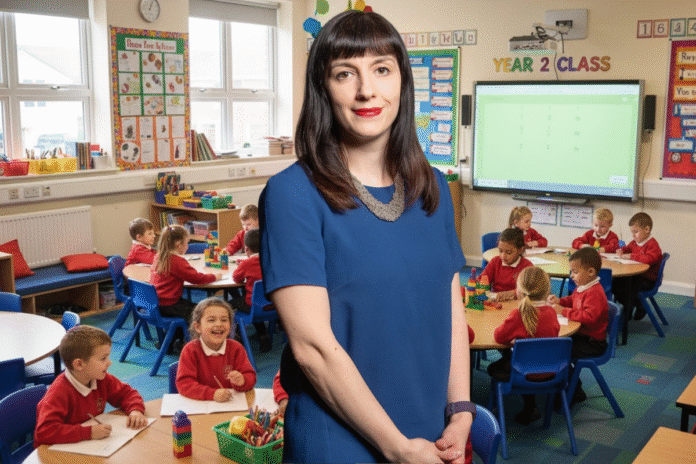Children in England will soon be taught how mortgages work and how to manage personal finances as part of a major overhaul of the national curriculum – the first in more than a decade.
The reforms, announced by Education Secretary Bridget Phillipson (main picture, inset), will see financial literacy embedded into maths and citizenship lessons, ensuring pupils gain a practical understanding of budgeting, borrowing, and long-term financial commitments such as mortgages.
The aim is to equip young people with essential financial skills as they prepare for adulthood.
BETTER UNDERSTANDING
Phillipson said the government wanted to “revitalise” the curriculum while maintaining strong foundations in English, maths, and reading. She added that the new measures would give children “a better understanding of the financial world they will enter.”
Headteachers welcomed the plans as “sensible” but warned they would require additional resources and teacher training to deliver effectively.
Alongside mortgage education, pupils will also learn how to identify misinformation and AI-generated content, reflecting the government’s ambition to make digital literacy a core life skill. A new post-16 qualification in data science and AI is also being explored.
REDUCE EXAM TIME
The Department for Education said the reforms would replace “outdated” assessment systems such as the English Baccalaureate (EBacc) and encourage a broader range of GCSE subjects.
Other priorities include reducing exam time, expanding climate change education, and giving oracy – speaking and communication – equal importance alongside reading and writing.
The government said changes would be phased in over the next academic cycle following further consultation.
REAL-LIFE EXPERIENCE

Mark Harris, chief executive of mortgage broker SPF Private Clients, said: “Financial literacy is a life skill that can make all the difference between keeping on top of your finances or finding yourself drowning in debt.
“Teaching children these valuable lessons in the classroom will ensure that nobody slips through the net.”:
But he added: “However, they need to be taught properly in order to have a real impact so we would suggest going a step further – rather than teachers adding mortgages to their workload, we would encourage the government to invite mortgage brokers into the classroom.
“Being at the coalface with real-life experience, brokers can better explain how the mortgage market works, how to borrow sensibly and seek independent advice, the importance of having a strong credit file and not overstretching yourself.
“This will ensure the next generation are much more clued up than their parents.”



